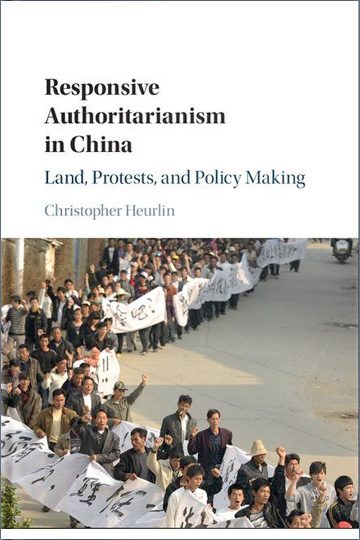
- Publisher: Cambridge University Press
- Available in: Harcover
- ISBN: 1107131138
- Published: October 4, 2016
How can protests influence policymaking in a repressive dictatorship? Responsive Authoritarianism in China sheds light on this important question through case studies of land takings and demolitions – two of the most explosive issues in contemporary China. In the early 2000s, landless farmers and evictees unleashed waves of disruptive protests. Surprisingly, the Chinese government responded by adopting wide-ranging policy changes that addressed many of the protesters’ grievances. Heurlin traces policy changes from local protests in the provinces to the halls of the National People’s Congress (NPC) in Beijing. In doing so, he highlights the interplay between local protests, state institutions, and elite politics. He shows that the much-maligned petitioning system actually plays an important role in elevating protesters’ concerns to the policymaking agenda. Delving deep into the policymaking process, the book illustrates how the State Council and NPC have become battlegrounds for conflicts between ministries and local governments over state policies.
Reviews
‘[Responsive Authoritarianism in China] is a cogent analysis of Chinese state-society relations that takes us from abandoned rice fields and condemned urban neighborhoods all the way into the most rarified halls of elite policymaking. Christopher Heurlin’s expansive argument linking the nomenklatura appointment system with petitioning and other forms of protest is both innovative and persuasive, providing an elegant political explanation for why some protests fail and others succeed in China.’ Andrew Mertha, Cornell University ‘The surge of land-related popular protests in China has caught extensive attention in recent years, but it is notoriously difficult to establish causal connections between social protests and policy outcomes. In this book Christopher Heurlin systematically examines the policy making processes triggered by petitions or protests, and offers one of the most illuminating studies on authoritarian responsiveness in China.’
-Xi Chen, Chinese University of Hong Kong